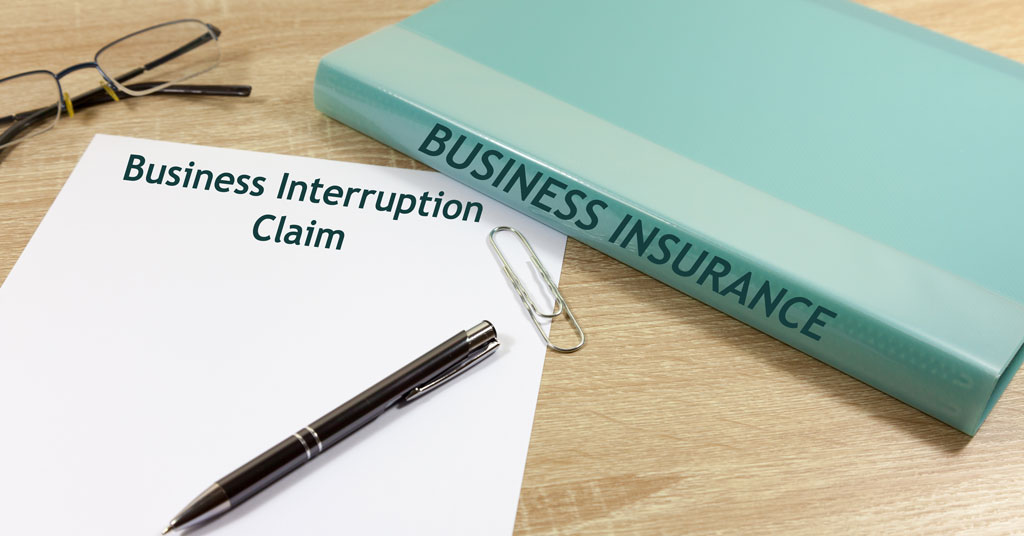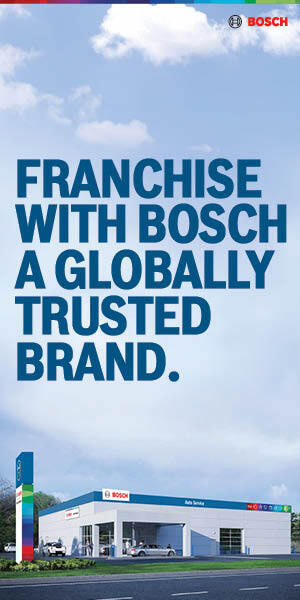Covid-19 and Business Interruption Insurance – How To File a Claim the Right Way

Passivity is seldom a good business plan, especially in a crisis when the survival of your business may be at stake. Covid-19 is a crisis that greatly threatens franchised businesses. It is clear that action must be taken, but what action?
Many businesses have received federal or state relief, but since no one knows how long the effects related to Covid-19 will continue, no one knows for sure if that relief will be adequate over time. Owners of franchised businesses know that another potential lifeline is business interruption insurance. But owners hear so many conflicting things about Covid-19 and business interruption insurance that they often end up in a paralysis of indecision. This article is about breaking that paralysis by taking practical steps that keep your options open.
All owners of franchised businesses have (or should have) business interruption insurance. This type of coverage is included in “property insurance,” or what many people refer to as “fire” or “casualty” insurance. The purpose of business interruption insurance is to replace your lost net income and cover your ongoing expenses during the period you are unable to use your store or other type of business premises. More specifically, this type of insurance pays out when you are unable to use your premises because some type of disaster has damaged them.
The big issue is whether Covid-19 constitutes the type of disaster that is covered by business interruption insurance.
You may have seen news stories about this. The insurance industry is rejecting all claims related to Covid-19, and confidently stating that business interruption insurance does not cover business losses resulting from the coronavirus. The insurance industry’s position perplexes many policyholders, who do not understand why an insurance product for which they have paid sizable premiums does not protect them exactly when they need it most.
Many lawyers disagree with the insurance industry’s position, and there is a growing wave of lawsuits seeking to enforce coverage. These are not frivolous lawsuits. Business owners at the top of their profession, including renowned chefs Thomas Keller and Wolfgang Puck, have brought suits. Also, several state legislatures have introduced proposed bills that would require the insurance companies to provide coverage. So far, none of those bills has been enacted into law, and the bills have numerous issues. Nonetheless, passage of some of these bills remains a possibility.
The legal issues concerning business interruption insurance coverage are complicated. A policyholder’s chance of prevailing depends on:
1) their type of policy
2) the state (or states) in which their business is located (insurance law is state-specific, and the key issues relative to Covid-19 coverage often differ greatly from state to state)
3) their specific type of business (e.g., whether social distancing is possible for that type of business)
4) whether they are a franchisee or franchisor (franchisors may have coverage not only with respect to any franchisor-owned stores, but also with respect to their franchisees’ stores)
5) how sophisticated their legal and other advisors are with respect to these matters.
Many legal and other advisors handle insurance claims every day, but we believe it is safe to say that none of them has previously handled an issue as far-reaching and complicated as this.
What you can do now – and how to do it effectively
Two things, however, are clear. First, there is a very real chance that insurance companies will have to pay out to at least some policyholders, whether because of litigation or state legislation mandating coverage. Second, if there are such payouts, then only those policyholders who have filed claims are likely to obtain a meaningful recovery. In terms of litigation, insurance policies require that a claim be filed “promptly,” and the window of time for what constitutes “promptly” is likely closing quickly. Thus, to preserve the opportunity to file a lawsuit, you must file a claim very soon if you have not already. Further, if policyholders prevail through state government-mandated coverage, then the policyholders who have filed claims will likely have priority over those who have not. As the experience with the Paycheck Protection Program has taught us, it is much better to be at the front of the line than at the back.
Thus, the first step you must take is to file a claim. It can be as easy as a phone call to your insurance broker or agent, who will often be able to file the claim for you. Do not be discouraged if your insurance intermediary tells you that there is no coverage, and that filing a claim is a waste of time. This is the insurance industry’s current tactic to discourage businesses from filing claims. Whether your insurance intermediary files the claim or you do it yourself, be sure that the claim states that your business premises have suffered physical damage from Covid-19, and that you are seeking all coverages available under your business interruption policy.
Next, a claims examiner from the insurance company will contact you to ask questions about your claim. They may ask you to fill out a written questionnaire, and they will likely call you for a verbal interview. This questionnaire/interview stage is extremely important because the insurers ask questions where the answer may seem obvious to someone who has not read all the applicable case law. However, in fact, the seemingly obvious answer will lead to automatic denial; further, and most important (since the insurers are denying all these claims anyway), it will undercut the policyholder’s arguments in the event of litigation.
There will be questions such as 1) “Was there physical damage at your premises?”; 2) “What caused the interruption in your business?”; and 3) “Did the government shut you down as a precautionary measure?” The obvious answers seem to be, respectively, “No,” “Coronavirus,” and “Yes.” All those are the wrong answers, or at least are only partially correct.
1) “Was there physical damage at your premises?” The policyholder might not realize that there is no business interruption coverage unless there was direct physical damage to the premises. It might not look (to the human eye) as if there has been any damage to the premises because of Covid-19, but there is a line of cases where the courts ruled that there is direct physical damage to insured premises (thus triggering business interruption coverage) in situations where the damage is microscopic, hanging in the air within the premises and on its surfaces, and therefore making the premises unsafe to enter and use. These cases include ammonia, carbon monoxide, gas fumes, and even the overpowering stench of cat urine. Thus, policyholders will almost always say “No” when asked if there is physical damage at the premises. But legal counsel aware of how this issue has been handled in the courts knows that the correct answer is “Yes. Damage by the presence of a microscopic, but very real and very dangerous virus on the surfaces of the premises.”
2) “What caused the interruption in your business?” The correct answer is not just Covid-19, or just the government-mandated shutdown, but rather, “a combination of Covid-19 and the government-ordered shutdown.” This article is too brief to discuss why that is the correct answer, but it is a very important – and correct – response.
3) “Did the government shut you down as a precautionary measure?” The answer seems to be yes, but if the policyholder says that, then the insurer will point to a line of cases dealing with events such as evacuation orders before a hurricane made landfall, where courts have held that the governmental order, being only “precautionary,” was not the basis for a business interruption claim. The correct answer for the Covid-19 context is that the governmental order is precautionary only in one sense: although the virus has gotten into premises all across the country, including most likely the franchisee’s premises, the government-ordered shutdown is a precaution to stop further spread of the virus.
Remember, there will be no coverage if you do not get past the threshold issue of physical damage to the premises.
More questions, more nuanced answers
There are many other questions that require nuanced answers, including, among others, questions with respect to testing, cleaning, and whether there are any known instances of infection at the premises. The responses that policyholders usually give to these cleaning, testing, and infection questions are not factually wrong, but they are not sufficiently comprehensive and nuanced. Many owners of franchised businesses have already filed claims, had these interviews, and undoubtedly given wrong (or insufficiently comprehensive and nuanced) answers. These franchisees should file a “corrected claim” so they can fix those responses.
In terms of handling the questionnaire process, size and scale can help. If you are a franchisor, you might consider setting up a program to assist your franchisees with submitting claims and responding to these questionnaires and interviews. The program could stop there or could go further, for example by supplying franchisees with “sample” forms of complaints, and even further types of pleadings if franchisees desire to file litigation themselves.
After you’ve filed a claim
Once you have filed your claim and successfully gone through the questionnaire/interview process, you are “in the game,” so to speak. It will now be your decision whether to file a lawsuit. You will not be barred from doing so because you failed to file your claim promptly. If there is state-mandated coverage, you will be at the front of the line and not playing catch-up. You will have taken practical steps and broken through the paralysis of indecision.
As to whether you should file a lawsuit, we make the following observations:
1) In our opinion, the most realistic route to potential coverage is through litigation using sophisticated legal arguments tailored to your specific type of business and the terms of your policy. Such suits should be filed very soon.
2) For those pinning their hopes on potential state legislation, our opinion is that it is possible for such legislation to be passed in some states, but such bills are unlikely to be enacted unless there is also some form of insurance industry bailout. At present that does not look likely.
Although some policyholders may adopt a “wait and see” approach regarding whether to file a lawsuit, the dangers with such an approach are threefold. First, there is the danger that less sophisticated or less individually tailored lawsuits will be filed ahead of yours and will fail, establishing an unfavorable precedent that may be very hard to workaround. Second, even if some lawsuits filed by others are successful, they may not benefit you because insurance companies may prefer to enter into confidential settlement agreements instead of taking the risk of an adverse published decision that would establish a precedent. Third, as with the Paycheck Protection Program, ultimately there is only so much money to go around, and those who have taken the initiative and are in the front of the line will fare the best.
Whether you are a franchisor or franchisee, we hope that you take the actions we have outlined to protect your business, at the very least in terms of successfully navigating the initial claims process. Whether it is the attorneys at our firm or at another law firm, experienced counsel can assist you through this process (and subsequent litigation if you so choose), giving you the tailored and individualized attention successful claims will require.
Eric Everett and Zachary Darrow are attorneys with the law firm DarrowEverett, which has offices in New York, Massachusetts, Rhode Island, and Florida. This article is intended for general informational purposes only and does not constitute legal advice. The firm also has a dedicated web page for Covid-19 Resources and Updates.
Share this Feature
Recommended Reading:
| ADVERTISE | SPONSORED CONTENT |
FRANCHISE TOPICS
- Multi-Unit Franchising
- Get Started in Franchising
- Franchise Growth
- Franchise Operations
- Open New Units
- Franchise Leadership
- Franchise Marketing
- Technology
- Franchise Law
- Franchise Awards
- Franchise Rankings
- Franchise Trends
- Franchise Development
- Featured Franchise Stories
| ADVERTISE | SPONSORED CONTENT |

$100,000
$125,000





 The multi-unit franchise opportunities listed above are not related to or endorsed by Multi-Unit Franchisee or Franchise Update Media Group. We are not engaged in, supporting, or endorsing any specific franchise, business opportunity, company or individual. No statement in this site is to be construed as a recommendation. We encourage prospective franchise buyers to perform extensive due diligence when considering a franchise opportunity.
The multi-unit franchise opportunities listed above are not related to or endorsed by Multi-Unit Franchisee or Franchise Update Media Group. We are not engaged in, supporting, or endorsing any specific franchise, business opportunity, company or individual. No statement in this site is to be construed as a recommendation. We encourage prospective franchise buyers to perform extensive due diligence when considering a franchise opportunity.